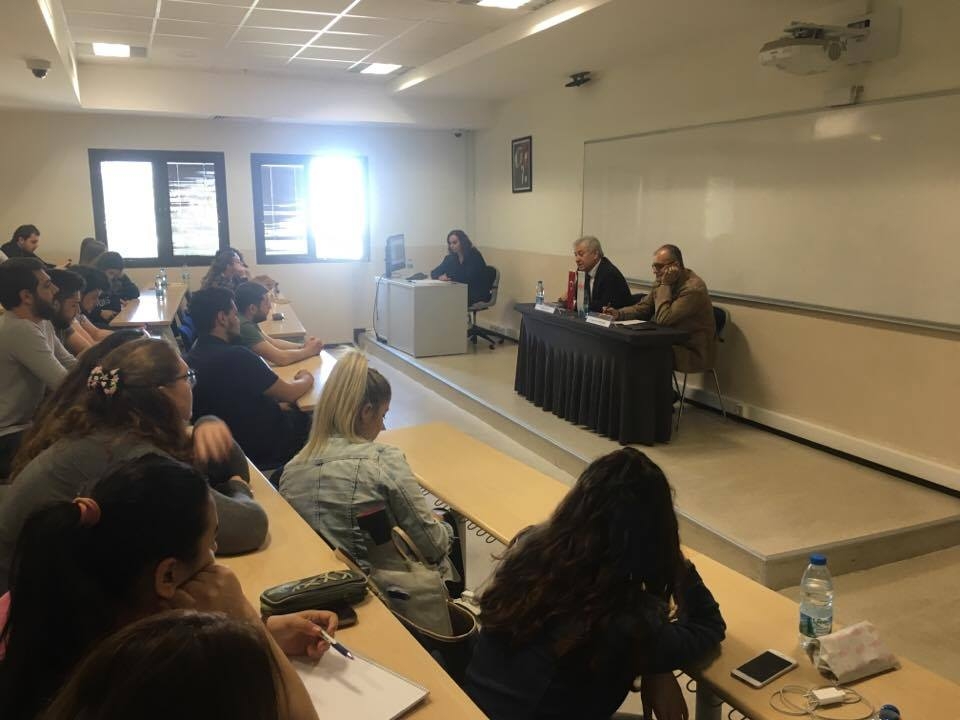
...
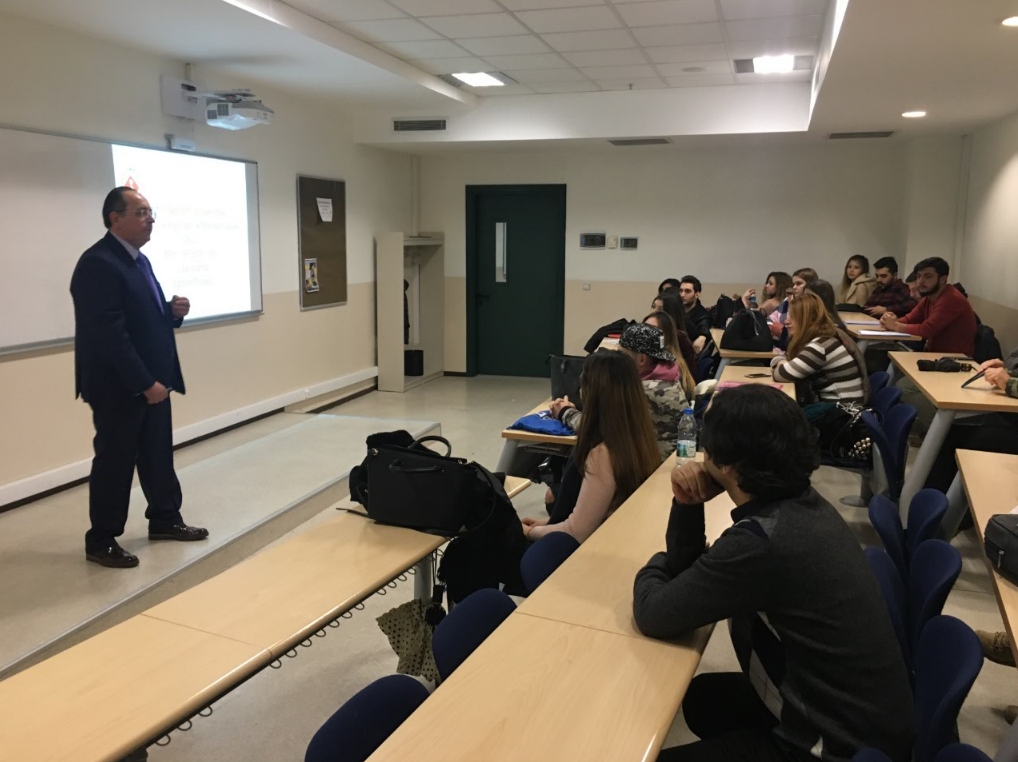
...
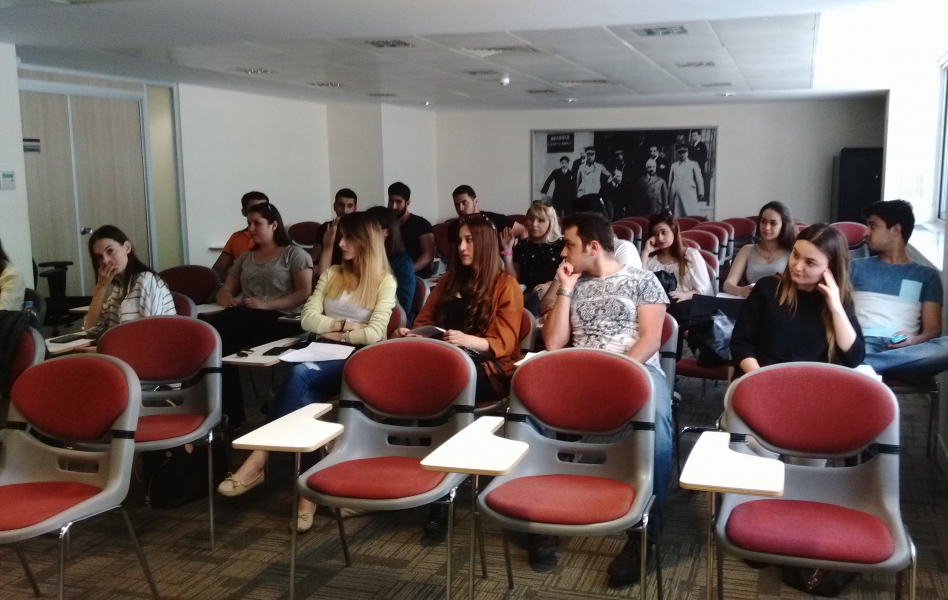
...
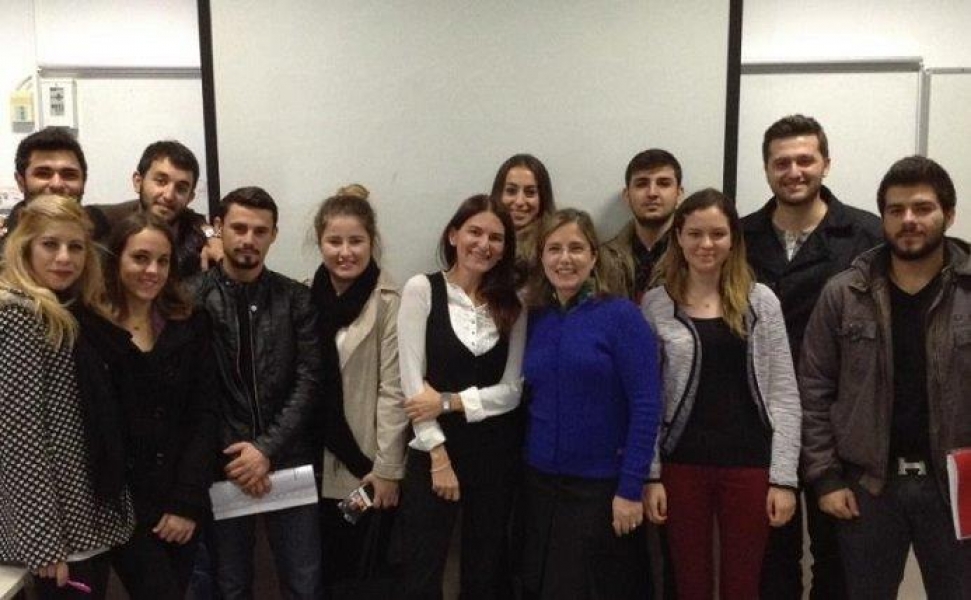
...
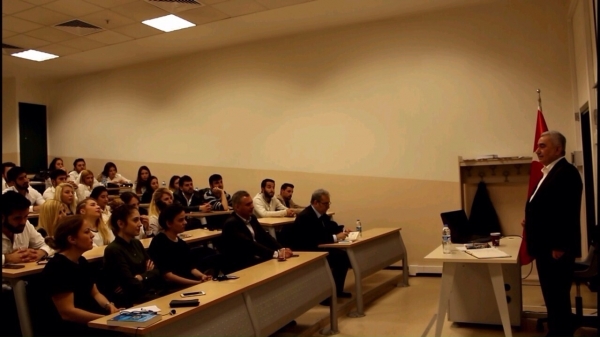
...

...
| Course Name |
Financial Accounting I
|
|
Code
|
Semester
|
Theory
(hour/week) |
Application/Lab
(hour/week) |
Local Credits
|
ECTS
|
|
MUH 190
|
Fall
|
3
|
0
|
3
|
4
|
| Prerequisites |
None
|
|||||
| Course Language | ||||||
| Course Type |
Required
|
|||||
| Course Level |
-
|
|||||
| Mode of Delivery | - | |||||
| Teaching Methods and Techniques of the Course | DiscussionProblem SolvingLecture / Presentation | |||||
| National Occupation Classification | - | |||||
| Course Coordinator | ||||||
| Course Lecturer(s) | ||||||
| Assistant(s) | - | |||||
| Course Objectives | This course aims to enable the student to perform accounting records and prepare the company's year-end balance sheet. |
| Learning Outcomes |
The students who succeeded in this course;
|
| Course Description | The student will be able to explain the basic concepts of accounting, perform the necessary accounting records by applying accounting procedures and principles, create accounting ledgers, and prepare the year-end balance sheet. |
| Related Sustainable Development Goals |
|
|
|
Core Courses | |
| Major Area Courses | ||
| Supportive Courses | ||
| Media and Management Skills Courses | ||
| Transferable Skill Courses |
| Week | Subjects | Related Preparation |
| 1 | Definition of accounting, its functions, users of accounting information, scope of accounting, and basic concepts of accounting | Sevilengül, O. (2020). Genel Muhasebe. Gazi Kitabevi. ISBN: 9786257855426.. Chapter 1-2 |
| 2 | Definition of balance sheet, basic balance sheet equation, the impact of financial transactions on the balance sheet | Sevilengül, O.(2020). Genel Muhasebe Gazi Kitabevi. ISBN: 9786257855426. Chapter 2 |
| 3 | Concept of account, operation and rules of accounting accounts, sequence of accounting transactions | Sevilengül, O.(2020). Genel Muhasebe. Gazi Kitabevi. ISBN: 9786257855426. Chapter 3 |
| 4 | Ledgers and records in accounting, monthly trial balances, general provisional trial balance, concept of inventory, final trial balance, year-end balance sheet, and income statement | Sevilengül, O.(2020). Genel Muhasebe. Gazi Kitabevi. ISBN: 9786257855426. Chapter 4 |
| 5 | Ledgers and records in accounting, monthly trial balances, general provisional trial balance, concept of inventory, final trial balance, year-end balance sheet, and income statement | Sevilengül, O.(2020). Genel Muhasebe. Gazi Kitabevi. ISBN: 9786257855426. Chapter 4 |
| 6 | Concept of assets and current assets accounts | Sevilengül, O.(2020). Genel Muhasebe..Gazi Kitabevi. ISBN: 9786257855426. Chapter 5 |
| 7 | Current assets accounts | Sevilengül, O.(2020). Genel Muhasebe. Gazi Kitabevi. ISBN: 9786257855426. Chapter 5 |
| 8 | MIDTERM WEEK | |
| 9 | Fixed assets accounts | Sevilengül, O.(2020). Genel Muhasebe. Gazi Kitabevi. ISBN: 9786257855426. Chapter 5 |
| 10 | Short-term liabilities accounts | Sevilengül, O.(2020). Genel Muhasebe. Gazi Kitabevi. ISBN: 9786257855426. Chapter 6 |
| 11 | Long-term liabilities accounts | Sevilengül, O.(2020). Genel Muhasebe. Gazi Kitabevi. ISBN: 9786257855426. Chapter 6 |
| 12 | Equity accounts | Sevilengül, O.(2020). Genel Muhasebe. Gazi Kitabevi. ISBN: 9786257855426. Chapter 6 |
| 13 | Income statement accounts | Sevilengül, O.(2020). Genel Muhasebe. Gazi Kitabevi. ISBN: 9786257855426. Chapter 8 |
| 14 | Year-end transactions | Sevilengül, O.(2020). Genel Muhasebe. Gazi Kitabevi. ISBN: 9786257855426. Chapterr 9 |
| 15 | General Evaluation of the Period | |
| 16 | FINAL WEEK |
| Course Notes/Textbooks | |
| Suggested Readings/Materials |
| Semester Activities | Number | Weigthing |
| Participation |
1
|
10
|
| Laboratory / Application | ||
| Field Work | ||
| Quizzes / Studio Critiques |
1
|
20
|
| Portfolio | ||
| Homework / Assignments | ||
| Presentation / Jury | ||
| Project | ||
| Seminar / Workshop | ||
| Oral Exams | ||
| Midterm |
1
|
30
|
| Final Exam |
1
|
40
|
| Total |
| Weighting of Semester Activities on the Final Grade |
3
|
60
|
| Weighting of End-of-Semester Activities on the Final Grade |
1
|
40
|
| Total |
| Semester Activities | Number | Duration (Hours) | Workload |
|---|---|---|---|
| Theoretical Course Hours (Including exam week: 16 x total hours) |
16
|
3
|
48
|
| Laboratory / Application Hours (Including exam week: '.16.' x total hours) |
16
|
0
|
|
| Study Hours Out of Class |
14
|
2
|
28
|
| Field Work |
0
|
||
| Quizzes / Studio Critiques |
1
|
8
|
8
|
| Portfolio |
0
|
||
| Homework / Assignments |
0
|
||
| Presentation / Jury |
0
|
||
| Project |
0
|
||
| Seminar / Workshop |
0
|
||
| Oral Exam |
0
|
||
| Midterms |
1
|
16
|
16
|
| Final Exam |
1
|
20
|
20
|
| Total |
120
|
|
#
|
Program Competencies/Outcomes |
* Contribution Level
|
|||||
|
1
|
2
|
3
|
4
|
5
|
|||
| 1 |
To be able to develop themselves in the subjects of obtaining the financial resources necessary for the activities of individuals and enterprises under the most favorable conditions and examining the use of the accumulated funds. |
-
|
-
|
-
|
-
|
-
|
|
| 2 |
To be able to discuss the role, importance and functions of the institutions providing banking and insurance services in the economic system |
-
|
-
|
-
|
-
|
-
|
|
| 3 |
To be able to evaluate the organizational structure, business processes, and service portfolios of banks, insurance companies, and other financial institutions operating in the sector. |
-
|
-
|
-
|
-
|
-
|
|
| 4 |
To be able to develop skills in identifying, measuring, and assessing financial and operational risks, and to acquire fundamental knowledge to understand and apply insurance products against these risks. |
-
|
-
|
-
|
-
|
-
|
|
| 5 |
To be able to recognize financial products offered in the banking and insurance sector, and to gain skills in effective marketing and sales, as well as managing long-term customer relationships. |
-
|
-
|
-
|
-
|
-
|
|
| 6 |
To be able to possess basic legal knowledge and closely monitor legislative changes relevant to the field. |
-
|
-
|
-
|
-
|
-
|
|
| 7 |
To be able to possess basic knowledge of accounting and analyze financial statements to evaluate the financial status of businesses. |
-
|
-
|
-
|
-
|
-
|
|
| 8 |
To be able to follow technological innovations in the financial sector and acquire knowledge about the role of blockchain and artificial intelligence applications in the industry. |
-
|
-
|
-
|
-
|
-
|
|
| 9 |
To be able to make decisions based on the principles of professional ethics, accountability and responsibility |
-
|
-
|
-
|
-
|
-
|
|
| 10 |
To be able to follow international financial markets and global economic indicators by using English at least at the A2 level of the "European Language Portfolio" |
-
|
-
|
-
|
-
|
-
|
|
| 11 |
To be able to analyze and interpret banking and insurance data, and to develop data-driven strategies for financial decision-making. |
-
|
-
|
-
|
-
|
-
|
|
| 12 |
To be able to acquire knowledge about the components of national and international systems and the implementation of sector policies. |
-
|
-
|
-
|
-
|
-
|
|
| 13 |
To be able to direct his/her education to a further level of education |
-
|
-
|
-
|
-
|
-
|
|
*1 Lowest, 2 Low, 3 Average, 4 High, 5 Highest

...

...

...

...

...

...

As Izmir University of Economics transforms into a world-class university, it also raises successful young people with global competence.
More..Izmir University of Economics produces qualified knowledge and competent technologies.
More..Izmir University of Economics sees producing social benefit as its reason for existence.
More..